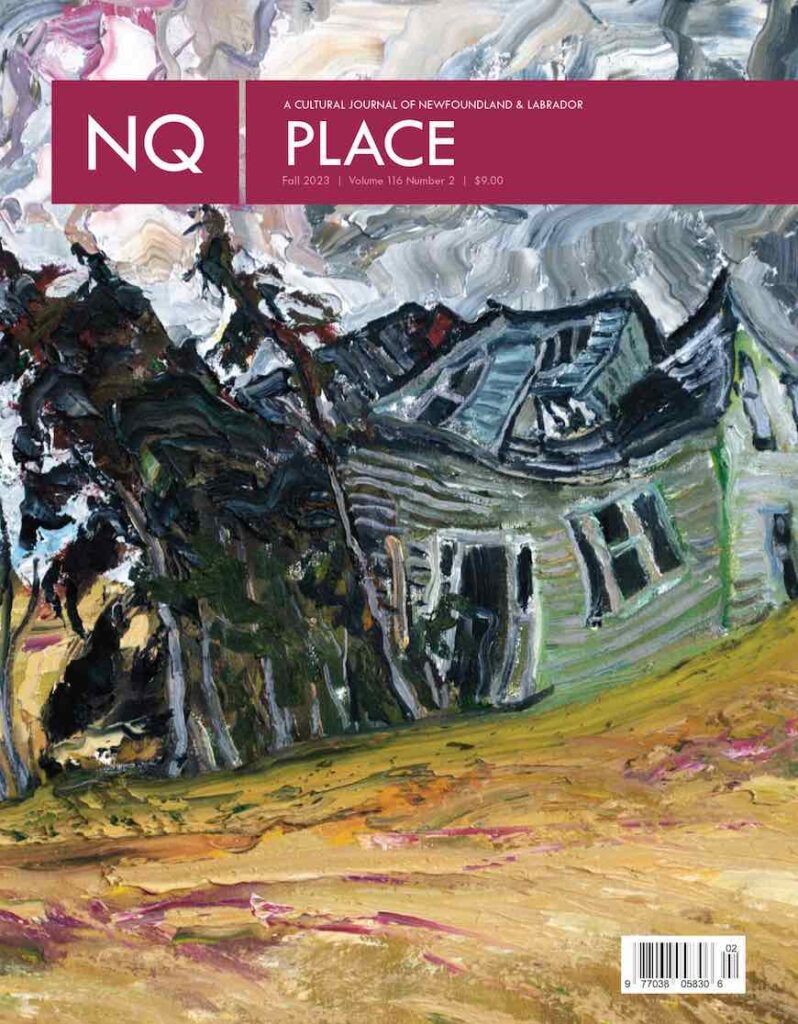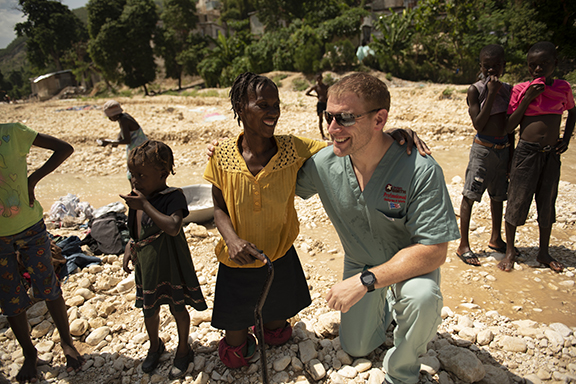The Road to Writing
BY Terry Doyle
May 2017
Terry Doyle won the Percy Janes Award this year for his novel Union. This is the story of that manuscript.
In May 2003, while riding a bus along Australia’s east coast, I finally found my calling. Or so I thought.
I’d dropped out of Memorial University in 2001, for lack of direction and funds. I’d moved away from home and learned to house and feed myself. Then, still feeling lost, still scratching around for some sense of purpose, I dropped out again, this time from my everyday life – I took my lonely self as far away from my origins as possible.
I remember tucking my bookmark into and closing The Proud Highway. I was staring out the window of an un-air-conditioned bus at a field of pineapples that looked nothing like I would have guessed. They looked like rows of aloe. I knew in that moment what I wanted to do. Who I wanted to be. It seemed obvious in hindsight: I wanted to be a writer.
After spending the next four years identifying as a writer, working on a novel that was never completed, and expounding about it to anyone who’d listen, I eventually stopped.
There were excuses and circumstances: a break up, several relocations, a distracting foray into musicianship – but in the end I simply gave up. I was ashamed when someone who’d previously been excited for me would inquire how the writing was going.
I’d lost my way again.
“The most regretful people on Earth are those who felt the call to creative work, who felt their own creative power restive and uprising, and gave to it neither power nor time.” – Mary Oliver
Rather than continuing to wander, searching again for that elusive purpose, I built a basecamp. Instead of a lean-to, I acquired a mortgage and a dog. Then I met my partner, Allison, and found warmth. We met our son, Burgess, and found sustenance. Then something occurred that forever changed my landscape, like a forest fire.
In February 2016 my best and indescribably close friend, Justin, ended up in the ER. This was a man that I’d known since we were four years old. Our moms sang together in a choir. We shared the kind of friendship that only comes from experiencing so much together, through such formative years: sleepovers, Super Nintendo, dial-up internet, skateboards, girls, drinking, smoking, getting beaten up, marriage, mortgages, fatherhood. Our feelings toward each other were never in jeopardy. We could be completely candid and vulnerable; there was no risk, the foundation was too strong. Justin was much more a part of my identity than even I realized.
On my birthday in March we finally got the results of all the tests.
Then we had nine months with him.
Nine months is a long time to consider how much someone means to you. How big a part of you they are.
I didn’t know how to process all of the emotions, all of the thoughts crashing through my mind. I began writing in a journal, mostly about Justin at first. But soon I found writing about him too difficult. Still, I kept writing. I didn’t know why; it just felt right.
I soon realized how therapeutic the writing was. It gave me purpose. It distracted me. It provided me with something to think about that wasn’t grief. It led me away from my pain.
But I had a mortgage, a dog, a wife, a son. I couldn’t allow myself to entertain ideas about trying again. I needed to provide. Didn’t I?
Seeing Justin and his wife, Joan, come to terms with his terminal illness was excruciating. But it gifted me the courage to say, “life’s too short” to forget about the reasons why not to try again. If I didn’t take this leap now, I never would.
So I wrote.
The writing kept me afloat. It prevented me from sinking into despair and allowed me to truly be there for Justin and Joan: to actually be present when we were together, to act normal and not share my sadness and grief with them, but to share laughter and joy. Laughter I don’t think I could have mustered if not for the writing.
In losing my best friend I found my way. Again.
I wrote about the experiences I’d had during my time away from writing. I had become a tradesperson. I worked in unionized and private sector construction. I’d gained experience that I figured few other writers would have, and I began to fictionalize those experiences into a novel: a story about Newfoundland today, exploring themes of place, economics, transient work and how those themes affect our lives and the lives of people we love.
While Justin underwent treatments and taught everyone he met a lesson in humility, strength, and courage, the novel poured out of me. The scenes lined themselves up one after another and by November I had typed my first draft.
In early November I met with MUN’s then writer-in-residence Sara Tilley to get some feedback on a portion of my novel. Sara’s eyes were the first besides my own to see any of the work. I asked Sara, with the deadline looming, if I should do a quick edit and submit my manuscript for consideration for the Percy Janes First Novel Award, which Sara herself had won in 2004. She said, “Go for it!”
So I did.
On Wednesday, November 23rd at 10:45 a.m. I dropped off my manuscript and application form at the Arts and Culture Centre, and from there I drove directly to the Miller Centre to see Justin.
By the time I arrived at the palliative care ward, he was gone.
A package arrived at my door in late February. When I opened it in my living room, and read the letter attached to my manuscript telling me that I had won, I wept.
My three-year-old son, Burgess, asked why I was so sad. I tried to explain to him that they were tears of joy, that I was, in fact, very happy. He was skeptical. And I guess there was sadness there as well. But I felt that day like I had honoured Justin somehow. That I had been incredibly fortunate to have had a friend as wonderful as him and that his love had given me the strength, the will, and the mind to do something that I, and hopefully he, could be proud of.
I will miss Justin for the rest of my life. I will be forever grateful that because of him, his unshakable friendship, and his ability to really see me and accept me, I am no longer lost.



